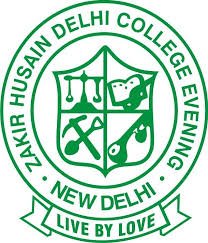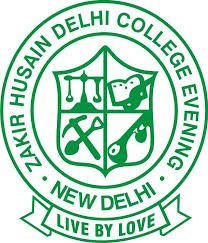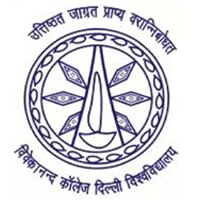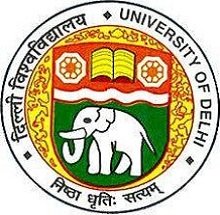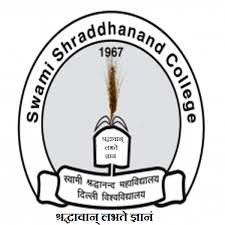Bachelor of Science (Honours) [B.Sc. (Hons.)]
3 Years
B.Sc. (Hons.) Overview:
The B.Sc. (Hons.) program at Zakir Husain Delhi College is typically available in various specialized branches of science. The program focuses on providing a solid foundation in both theoretical and practical aspects of the chosen discipline, with a focus on research, experimentation, and critical thinking.
Major Subjects Offered for B.Sc. (Hons.):
Zakir Husain Delhi College offers B.Sc. (Hons.) courses in the following scientific disciplines:
-
B.Sc. (Hons.) Physics
-
B.Sc. (Hons.) Chemistry
-
B.Sc. (Hons.) Mathematics
-
B.Sc. (Hons.) Botany
-
B.Sc. (Hons.) Zoology
Each of these disciplines offers a deep dive into the fundamental principles, theories, and methodologies related to their respective fields.
Program Structure:
The B.Sc. (Hons.) program typically spans 3 years (6 semesters) and includes both theoretical and practical courses. Here's an overview of the general structure for a B.Sc. (Hons.) degree:
First Year (Semester 1 & 2):
-
Fundamental Courses: These courses introduce the basic principles of the chosen subject, such as Physics, Chemistry, Mathematics, Botany, or Zoology. These subjects will also cover practical laboratory work.
-
Ability Enhancement Courses (AEC): These compulsory courses help enhance communication skills, Environmental Science, and other general education skills.
Second Year (Semester 3 & 4):
-
Advanced Courses: Students begin to delve deeper into more specialized topics, such as Electromagnetic Theory (Physics), Inorganic Chemistry (Chemistry), or Genetics (Zoology).
-
Practical Work: Students will continue with practical work in their laboratory sessions, where they conduct experiments and learn scientific methods.
Third Year (Semester 5 & 6):
-
Specialized Topics: In the final year, students specialize in advanced topics specific to their discipline, such as Quantum Mechanics (Physics), Organic Chemistry (Chemistry), or Ecology (Botany).
-
Research and Projects: Students may be required to complete research projects, experiments, or dissertation work related to their field of study.
Skill Enhancement Courses (SEC):
-
These include practical courses such as Science Communication, Data Analysis, and Computer Applications relevant to the discipline.
Generic Electives (GE):
-
Students may have the option to choose Generic Electives from other subjects or disciplines to broaden their knowledge base. For example, a Physics student might take an elective in Mathematics or Computer Science.
Assessment & Evaluation:
-
Internal Assessment: Includes assignments, lab reports, presentations, and class participation.
-
End-Semester Examinations: The final evaluation for each subject happens through written exams at the end of each semester.
Career Opportunities After B.Sc. (Hons.):
The B.Sc. (Hons.) program from Zakir Husain Delhi College opens up a wide range of career opportunities for graduates, including:
-
Higher Studies:
-
Students can pursue M.Sc. (Master of Science) in their respective fields, such as Physics, Chemistry, Mathematics, Botany, or Zoology.
-
Other options include pursuing M.Phil. or Ph.D. for those interested in research and academia.
-
-
Research & Development:
-
Graduates can work in R&D departments in industries such as pharmaceuticals, biotechnology, environmental science, and agriculture.
-
-
Teaching:
-
With further qualifications (like B.Ed. or M.Sc.), students can enter the teaching profession at schools or colleges.
-
-
Medical & Health Sciences:
-
Graduates in fields like Zoology or Botany may also pursue careers in medicine, biotechnology, or environmental health.
-
-
Government Sector:
-
Graduates can also appear for various government exams such as UPSC, SSC, or Indian Forest Services (IFS) for roles in scientific research, forestry, and environmental management.
-
-
Industry Jobs:
-
Graduates can work in industries related to their subject, such as pharmaceutical companies, chemical industries, cosmetic industries, and more.
-
-
Scientific Writing & Communication:
-
Graduates with strong communication skills may also work as science writers, journalists, or in public relations for scientific institutions or research organizations.
-
Admission Process:
-
Admission to the B.Sc. (Hons.) program at Zakir Husain Delhi College is generally based on the cut-off marks released by University of Delhi after the declaration of Class 12 results. The cut-off is determined based on the percentage achieved in the qualifying exams.
-
In some cases, students may also have to appear for an entrance exam, depending on the specific course and university guidelines.

